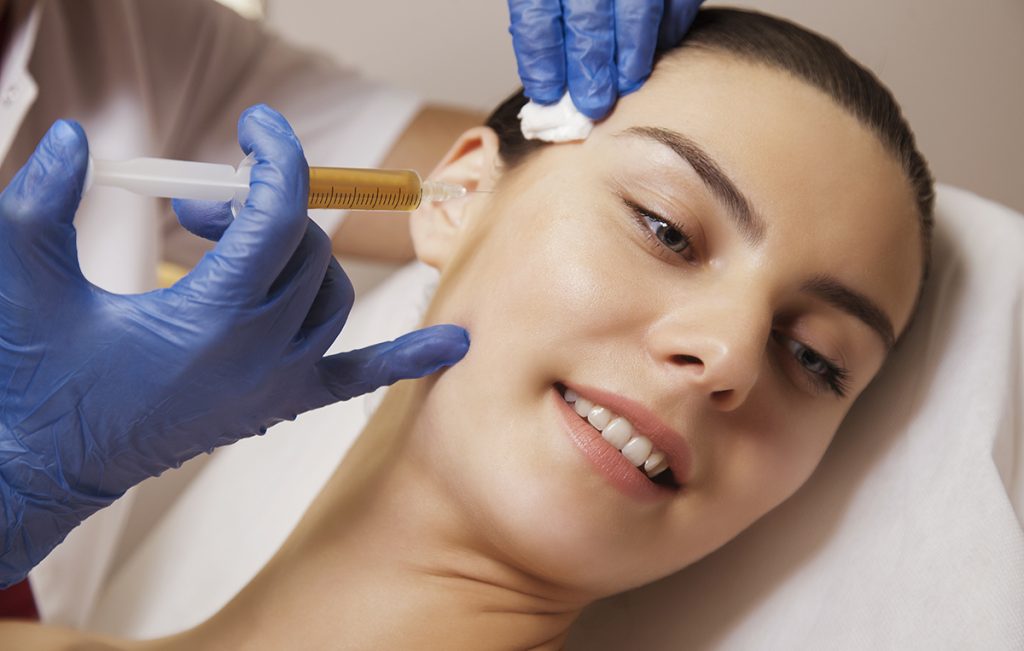How can I know if an injector is going to give me good results?
 While you can never know exactly what will result from an injectable treatment given variables in the human body, there are ways to increase your chances of getting attractive, natural-looking results.
While you can never know exactly what will result from an injectable treatment given variables in the human body, there are ways to increase your chances of getting attractive, natural-looking results.
Today we sit down again with board certified cosmetic surgeon Dr. Alexander Sobel to get an industry insider’s tips on finding a trustworthy BOTOX and filler provider.
It feels like everyone offers BOTOX now. How do I know who is safe to go to?
There are several paths to excellence as an injector. While education and experience are important boxes to tick off, the best injectors out there have additional qualities. Here are some suggestions to help you determine whether the provider is qualified and you have a good fit.
Medical qualifications of medical injectors
Don’t take this lightly! The injection of neuromodulators like BOTOX is a medical treatment using a prescription drug—and injection of fillers (which are classed as implantable devices in gel form) is technically a surgical procedure.
- Baseline medical education. Your injector should have the requisite medical and surgical education to safely administer these drugs and devices in addition to understanding how to manage their rare complications.
- Fellowship training in injectables. A person could be an amazing nurse or surgeon with extensive medical knowledge but still be a poor injector, so the next step is to ask what your injector has done to accumulate specific knowledge on the topic of facial injectables. Ideally, your injector will have had fellowship training of no less than one year. If not, ask how your injector has been trained and mentored and how many patients they have treated.
- Specific knowledge of facial & neck anatomy. Full knowledge of facial anatomy and physiology will give an injector far more control over the results of their treatments. However, the depth and breadth of facial anatomy are not covered in short injector courses. Extensive surgical training in the head and neck provides the most depth of complementary knowledge. This should be augmented with a specific understanding of the function and structure of the eye area.
- Certification. Has your injector submitted themselves to a validated examination and gained certification from a trustworthy organization? Are they maintaining such certification through a maintenance program?
- Ongoing education. What is your injector doing to maintain current education in this very dynamic field? Do they attend continuing medical education that is specific to injectables? What journals are they reading? Many injectors continue education solely by following the materials provided by injectable manufacturers. Though this information is helpful, it does not provide a comprehensive and unbiased education.
- Experience. For how many years has your injector been providing these treatments? And how often do they provide injectable treatments? A great provider learns from patients that they have injected, seeing the results of their treatment over time and through the aging process—and your results will benefit from that experience.
- Environment of Care. Does the office exude cleanliness and safety? Ask your injector what materials, protocols, and devices they have on hand to treat you if you were to have one of the very rare complications of these treatments. An answer that these complications are rare is unacceptable.
Look at their results, ideally on a live person
It almost goes without saying that it is important to examine before and after results, but there are a few pitfalls to avoid.
- Don’t be satisfied with manufacturer photos. Yes, the photo is of the product, but it is not of that injector’s work. Just like the same paints and brushes result in very different work between artists, the injector makes choices about placement, volume, and more that will be key to your final appearance.
- Ask to see photos of patients like you. In addition to demonstrating that the provider has treated people with similar concerns, this can help you get a better understanding of the kind of results you can expect.
- Meet a live patient, ideally at least a few. While photos are helpful, seeing how an injector’s work looks on a person as they talk, smile, concentrate, and make other expressions will give you insight into the dynamic qualities of the results. This is often easily possible in cosmetic surgery offices where fellow staff members receive treatment from the injector and can show you their results.
Other valuable qualities to look for in an injector
While all of these more easily measurable factors are important, I want to talk about some other qualities I see in great injectors.
- Wisdom. All injectors should improve over time. Talk to your injectors about what they’ve learned from their experience and how they are treating patients currently compared with historically.
- Humility. Facial injectables, administered by experienced hands, yield very consistent results. However, experienced injectors will also concede that adverse and unexpected events can happen. If your injector can’t admit this, it is a warning sign.
- Happiness. Does your injector seem to enjoy doing these procedures? Does the environment of care suggest that your injector’s colleagues and employees are happy? Though online reviews can oftentimes be misleading, do you get the general sense from other patient experiences that others are happy with this injector?
- Thoroughness of consultation. The injector needs to understand your expectations and be able to relate those expectations back to you in the context of what the procedures can actually provide. Only with a clear understanding of risks, benefits, and alternatives to treatment should a patient ever proceed with facial injectables.
I hope this information helps you go forward with more confidence. When the expectations of the patient, practicality of the product, and confidence of the injector match, good results are nearly always achieved.